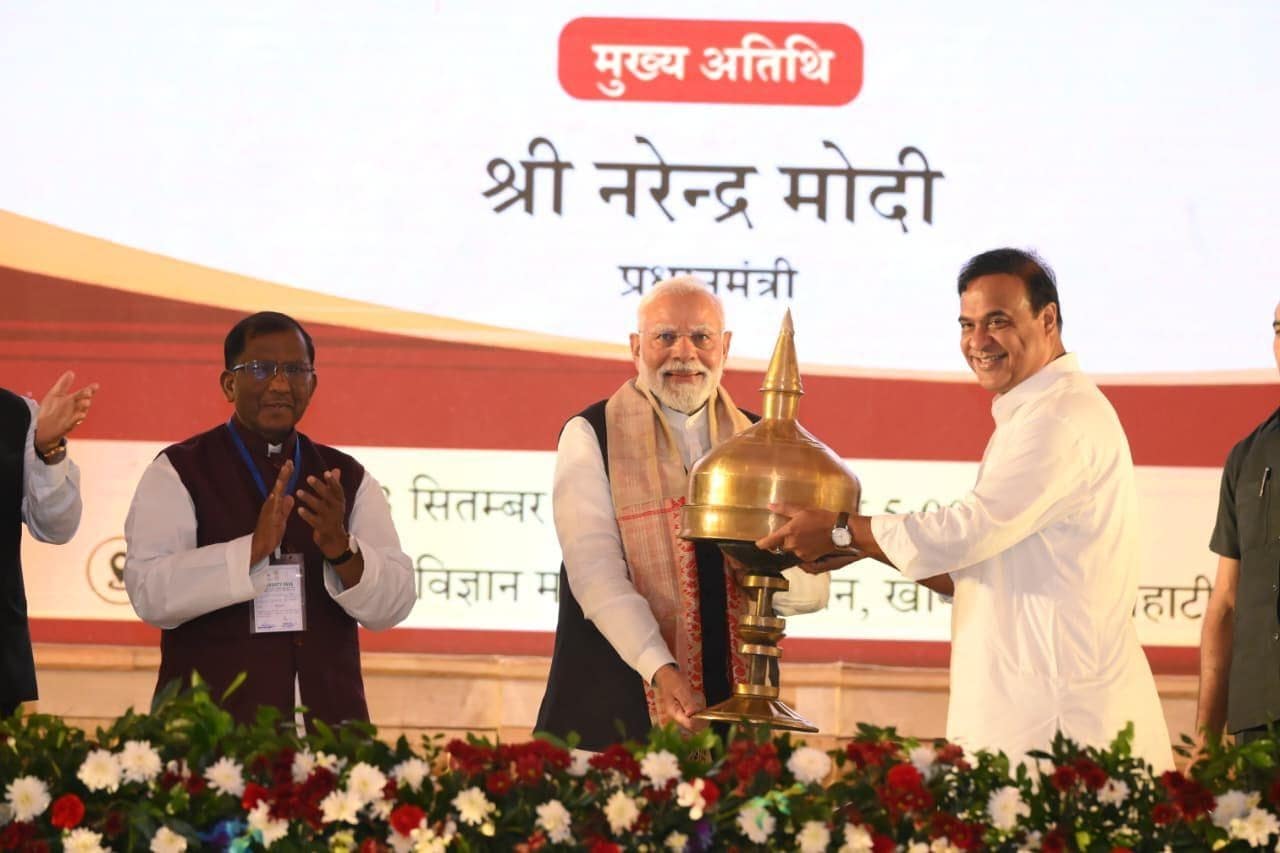- Home
- article
- PM Modi Unveils ₹18,500-Crore Development Push, Positions Assam as Hub of Self-Reliant India
PM Modi Unveils ₹18,500-Crore Development Push, Positions Assam as Hub of Self-Reliant India

PTI
article
9/17/2025Shathamanyu
Prime Minister Narendra Modi has inaugurated a slew of major development projects in Assam, amounting to about ₹18,500 crore,
underlining the state’s growing role in the vision of a self-reliant India. The projects were unveiled at Golaghat and other
districts on September 14, and Assam Chief Minister Himanta Biswa Sarma called them historic, saying they will benefit farmers,
youth, industry and help further the goal of Atmanirbhar Bharat (self-reliant India).
One of the flagship initiatives is the establishment of the world’s first bamboo-based 2G bio-ethanol plant, built at a cost of
around ₹5,000 crore. The plant will procure bamboo from local farmers and generate approximately 25 MW of green energy annually.
This project has been hailed as a “win-win situation” both for farmers—who gain a steady demand for bamboo—and for the
environment, through generation of renewable energy.
Another major investment is the foundation of a ₹7,230 crore Polypropylene (PP) Plant, aimed at reducing India’s dependence on PP
imports by about 20%. The plant is expected to save foreign exchange of roughly ₹700 crore per year, and generate up to 75,000 new
jobs in Assam across its value chain in sectors such as automobile, textiles, and industry.
Beyond these industrial projects, several infrastructure and welfare schemes were also announced. These include a new Medical
College and Nursing College in Darrang (including a GNM school), the construction of the Guwahati Ring Road spanning 118.5 km that
will connect Kamrup and Darrang districts with Meghalaya, and a 2.9-km bridge between Narengi and Kuruwa. These announcements
together are part of an additional developmental package worth about ₹6,300 crore focused on health and infrastructure.
Chief Minister Sarma expressed his gratitude to Prime Minister Modi on social media, saying Assam is making “significant
contribution towards Atmanirbhar Bharat,” and that under Modi’s leadership the state is witnessing rapid progress in healthcare,
education, connectivity, and industrialization. He emphasized that Assam is among India’s fastest-growing state economies.
On the political front, the visit and the announcements are being viewed as preparation for the 2026 Assam Assembly elections.
Modi used the platform not only to highlight development initiatives but also to launch strong criticism of the opposition,
particularly Congress—accusing it of supporting infiltration, undermining Assam’s heritage, and prioritizing vote bank politics
over national security. Modi also announced what he termed a “Demography Mission”, citing concerns over infiltrators altering
Assam’s demographics—a topic that has long been contentious in the state.
Cultural recognition was also a theme: Modi recalled the legacy of Bharat Ratna Bhupen Hazarika, saying that his art symbolized
India’s unity, and that awarding him the Bharat Ratna reflects the government’s commitment to highlighting North-East India’s
contributions. Sarma echoed this, saying that the government has granted national recognition to Assam’s cultural heritage.
Recent news
Related News

Indian IT Firms Stare at $150–550 Million Hit as US H-1B Visa Fees Skyrocket
9/22/2025 Shathamanyu

Zepto’s Pink Store in Chennai aiming for women empowerment
9/12/2025 Shathamanyu

BioAsia 2025 Announces the Genome Valley Excellence Award to Prof. Patrick Tan
9/12/2025 Shathamanyu

Here is how you can detect a deep fake
9/11/2025 Shathamanyu